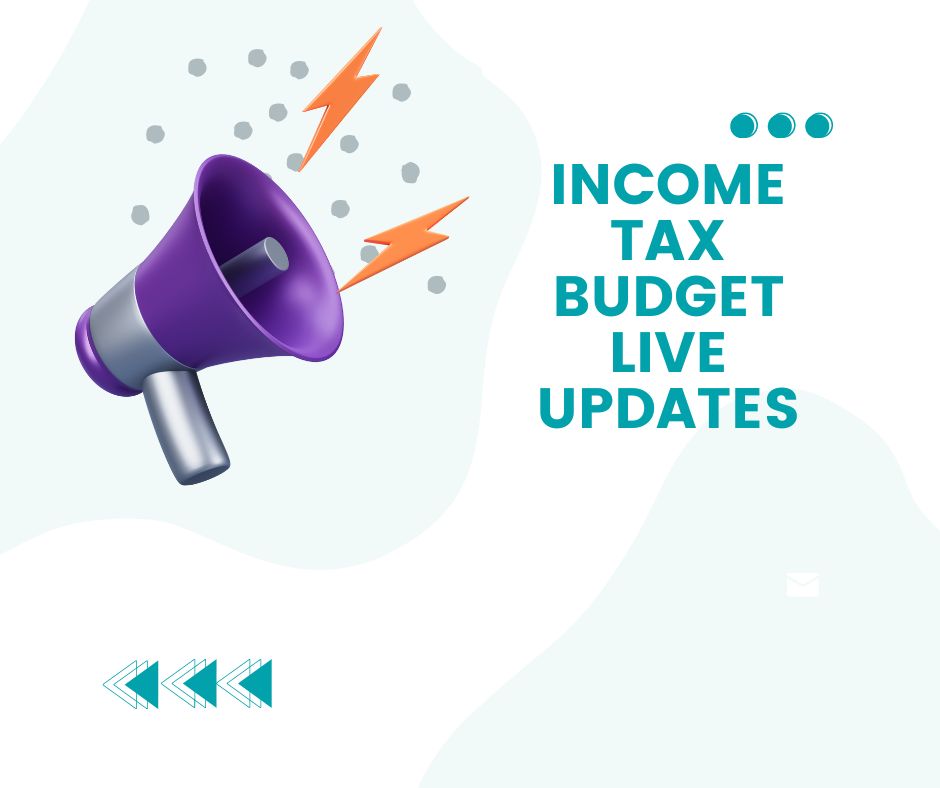New Delhi, 23 July 2024: The Union Budget 2024, presented by Finance Minister Nirmala Sitharaman, has introduced significant changes in the income tax structure aimed at providing relief to taxpayers and stimulating economic growth. The key highlights include proposed tax cuts and an increase in the standard deduction, measures that are expected to benefit a broad spectrum of taxpayers. Here are the live updates and in-depth analysis of the major announcements:
Major Tax Cuts Announced
One of the most anticipated aspects of the Budget 2024 was the proposal for tax cuts. The government has announced a reduction in the income tax rates across various slabs, aiming to increase disposable income for individuals and boost consumption.
Revised Tax Slabs
The new tax slabs proposed in the budget are as follows:
- Income up to ₹5 lakh: No tax
- Income between ₹5 lakh and ₹10 lakh: 10%
- Income between ₹10 lakh and ₹20 lakh: 20%
- Income above ₹20 lakh: 30%
This restructuring of tax slabs is designed to provide substantial relief to middle-class taxpayers, who form the majority of the tax base. The reduction in rates is expected to leave more money in the hands of individuals, potentially increasing spending and stimulating economic activity.
Impact on Middle-Class Families
The tax cuts are particularly beneficial for middle-class families. For instance, an individual earning ₹12 lakh annually would see their tax liability significantly reduced under the new regime. This reduction in tax burden is anticipated to improve the financial health of households, allowing for greater savings and investment.
Increased Standard Deduction
In addition to the tax cuts, the Finance Minister also announced an increase in the standard deduction. The standard deduction has been raised from ₹50,000 to ₹75,000, providing further relief to salaried individuals.
Benefits for Salaried Employees
The increase in the standard deduction will directly benefit salaried employees by reducing their taxable income. This measure is expected to ease the financial pressure on employees, especially those in the lower and middle-income brackets. The additional savings could be used for essential expenses or invested in various financial instruments, contributing to overall economic growth.
Encouraging Savings and Investments
The increased standard deduction, coupled with reduced tax rates, is likely to encourage individuals to save and invest more. Higher disposable income means that people can allocate funds towards investment in real estate, mutual funds, and other financial products, thereby boosting the investment climate in the country.
Other Key Announcements
Apart from the major changes in tax slabs and standard deductions, the Budget 2024 includes several other important announcements related to income tax.
Simplification of Tax Filing Process
To make tax compliance easier for taxpayers, the government has proposed simplifying the tax filing process. This includes the introduction of pre-filled income tax returns, which will reduce the time and effort required to file taxes. The move is aimed at encouraging more people to comply with tax regulations and widening the tax base.
Enhanced Deductions for Home Loans and Education
The budget also proposes enhanced deductions for home loans and education expenses. The deduction limit for interest on home loans has been increased, providing relief to homebuyers and promoting the real estate sector. Similarly, higher deductions for education expenses will support families investing in their children’s education.
Support for Senior Citizens
In a bid to support senior citizens, the government has increased the exemption limit for senior citizens’ income. This will ensure that senior citizens have more financial security and can manage their expenses better without worrying about high tax liabilities.
Economic Implications
The proposed tax cuts and increased standard deductions are expected to have significant economic implications. By increasing disposable income, the government aims to boost consumption and demand in the economy. Higher consumer spending can lead to increased production and job creation, contributing to overall economic growth.
Encouraging Compliance and Expanding the Tax Base
Simplifying the tax filing process and providing tax relief measures are also expected to encourage compliance among taxpayers. With easier processes and reduced tax rates, more individuals may be inclined to file their taxes correctly and on time, thereby expanding the tax base and increasing government revenues in the long run.
Boosting Investments and Economic Activity
With more disposable income, individuals are likely to invest in various financial products, real estate, and other sectors. This increase in investment can lead to higher economic activity, promoting growth and development across various sectors.

